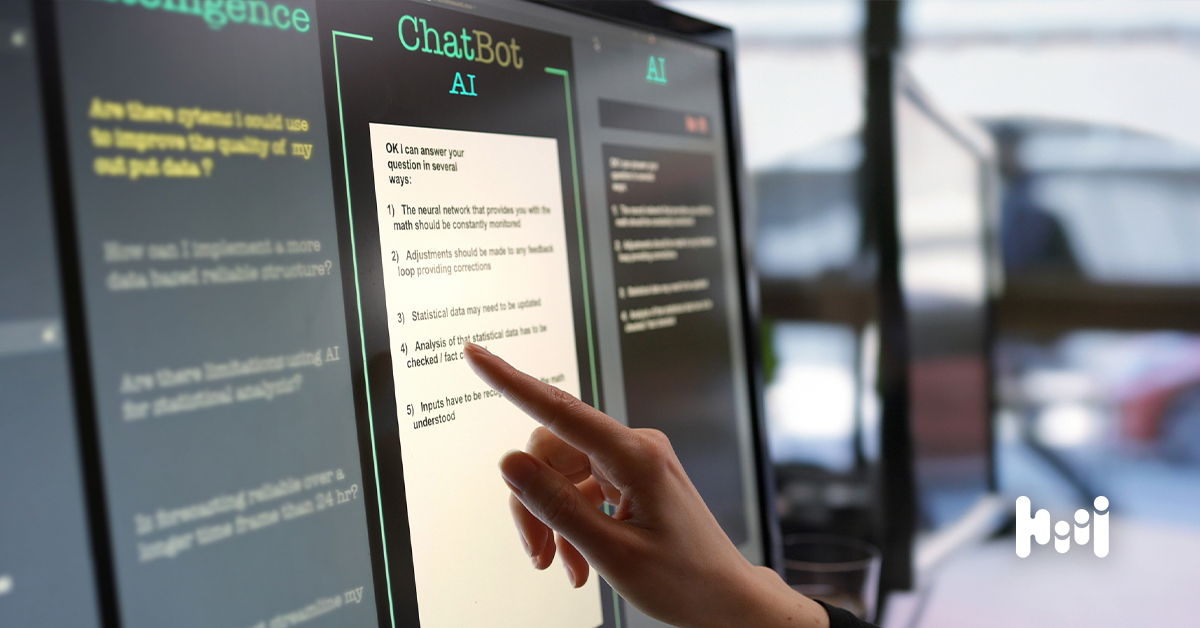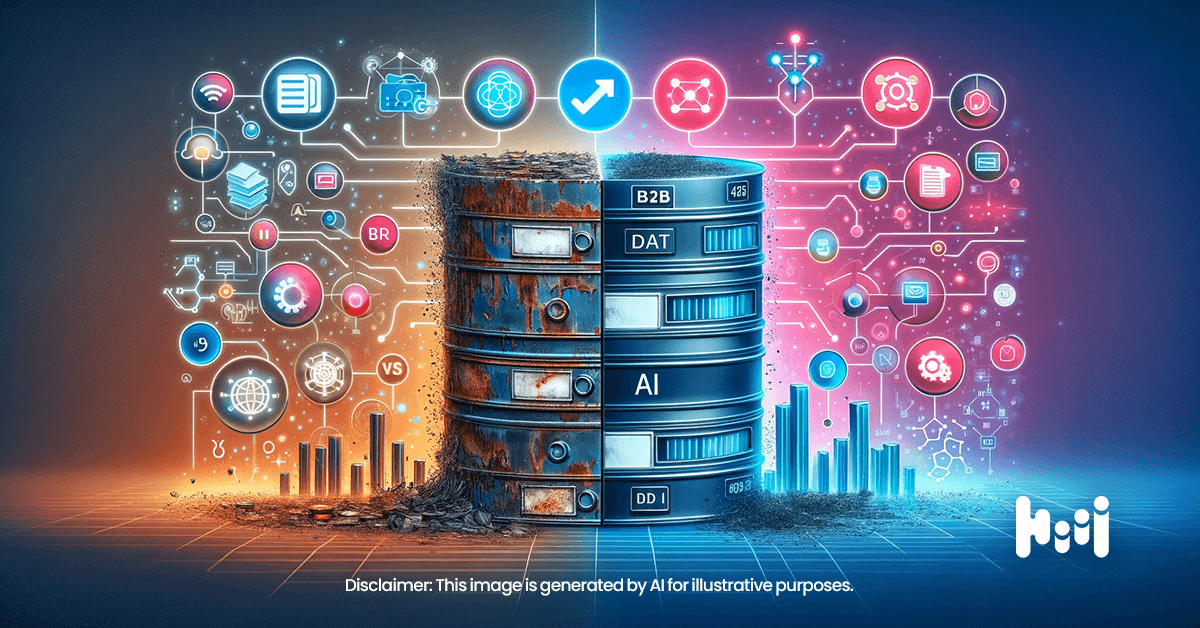The AI FOMO is real. According to a study from Forrester and Mailchimp, 88% of marketers believe their organization must increase its use of automation and AI to stay competitive. The race to harness the power of AI in marketing has heated up considerably due to the technological breakthroughs that AI models — especially large language models (LLMs) like OpenAI’s GPT-4 — have made since 2022.
With their vastly improved ability to generate human-like conversational text, AI tools are breaking records for swift adoption and opening up a whole new world of possibilities for marketers.
If you’re ready to ramp up your AI adoption to support your marketing team, there’s one easy way to start: ChatGPT. Available for free (or with upgraded capabilities for $20/month), this chatbot-style interface can act as a virtual assistant, a copywriter, or a generalist marketer to support your B2B lead generation efforts. The conversational AI tool takes your questions, requests, or prompts and generates answers, content, ideas, or responses — instantly.
ChatGPT is one of the fastest ways to augment your marketing team’s productivity. Let’s dive into five ways you can use ChatGPT for effective B2B lead generation.
Automate conversational interactions
Chatbots help B2B businesses answer questions, qualify leads, and provide 24/7 support to prospects and customers. But when conversations with chatbots don’t actually provide a helpful, high-quality experience, you aren’t doing your lead gen efforts any favors.
Now, you can give your website’s chatbot a significant upgrade by integrating ChatGPT — or feel confident enough in its conversational quality to finally add one to your site. Marketing tech providers like Hubspot offer off-the-shelf ChatGPT-powered chatbots, or you can leverage OpenAI’s API to build your own. You can use your own company documentation, like help articles, to further train your chatbot, or provide it with a specific chain of questions to improve lead qualification.
Thanks to ChatGPT’s ability to understand business context and nuance, you should see a positive impact on customer and prospect experience and, ideally, conversions.
Solve the “blank page” problem and get to a first draft faster
One of the foundational practices of B2B lead generation is developing content that speaks to your target audience and provides helpful, relevant information that guides them along their buying journey. Blogs, emails, ebooks, whitepapers, webinar presentations, infographics, video scripts — all are valuable assets, and all take a considerable amount of time to create. Many content creators find that the hardest step is getting started, and that’s where ChatGPT can play a valuable role.
Most marketing leaders agree that ChatGPT alone isn’t the path to quality, on-brand, publish-ready content. But it can solve the “blank page problem” of creating a first draft based on your content goals, outline, or key messaging points. You’ll likely need to spend time revising and refining its output, but for any written medium, ChatGPT can help you jumpstart the creation process and break through writer’s block.
Generate short form copy and A/B testing variables
When it comes to short form copy — think email subject lines, blog headlines, and PPC ad copy — ChatGPT can step up to the plate and play copywriter. That’s especially useful because these formats often require multiple iterations for testing or running campaign variations, which can take a lot of time and energy from creative teams.
Give ChatGPT your content request and your character count limits,and ask for multiple variations of short form copy. Even if you need to slightly edit or refine its output, the sheer volume of suggestions can save time, and you may find an unexpected angle or turn of phrase that you wouldn’t have come up with on your own.
Edit and refine your hand-crafted copy
ChatGPT isn’t just a writer — it’s an editor. One of its strengths is its ability to summarize information and extract key insights, which comes in handy when you need to zero in on key takeaways or simplify complex topics.
For example, ask ChatGPT to create a shorter version of a too-lengthy email. Request a more straightforward and clear way of phrasing a complicated paragraph. Or simply give it your content and ask it for a round of proofreading: identifying typos and mistakes, instances of the passive voice, or opportunities to improve clarity.
Personalize content for a tailored user experience
In B2B lead generation and nurturing, personalization is paramount. Consumers expect to receive content and messaging that speaks to their specific needs. Research from McKinsey shows that organizations who invest in and provide personalized experiences are significantly more likely to experience growth in market share.
ChatGPT can help your team tailor versions of your existing content for precise audience segments, from email sequence to ebooks. You can give ChatGPT your existing materials and ask it to adapt your headlines, use case examples, and other key messaging points by demographic, firmographic, or technograhic data points. This can come in especially useful for content syndication campaigns.
Ask it to create variations for audience segments based on job titles and industry (e.g., executives at financial services firms), current tech solutions (e.g., buyers who have yet to adopt cloud-based databases), or their level of purchase authority (e.g., decision-makers at medium-sized businesses). By improving the relevancy of your messaging, you should see an improvement in your overall campaign performance.
ChatGPT is just the beginning
Faster content creation, improved personalization, automated conversations — we’re just starting to scratch the surface of how generative AI can help marketing teams drive better lead generation results.











